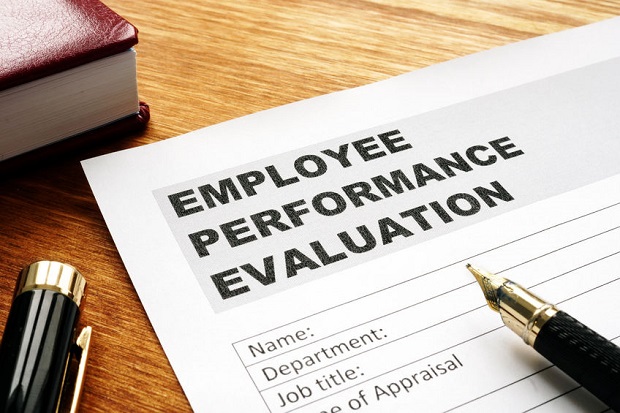
Writing a good employee performance review is essential in managing employees to maintain and promote productivity.
Why Employee Reviews Are a Critical Part of Your Business Success
- The employee performance review is used in making decisions on the employee’s status, such as pay increases, promotions, and whether to keep the employee.
- It is a valuable tool in helping to keep good employees and motivating them to do their best work to carry out and advance the goals and purposes of the employer.
- It provides documentation of an employee’s work record to protect the employer and perhaps even aid the employee in certain legal situations, such as in cases of unfairness or harassment.
- It can help identify problem areas in which the employee can improve his or her work performance to be a more valuable employee.
- It can also provide feedback on how work conditions can be improved to improve employee satisfaction so that good employees will want to stay on the job and poor employees will try to become better.
The Employee Review Process
However, writing the employee review is only part of the employee evaluation process. Timing is also essential. The review is usually given six months after the employee is hired to determine whether he or she should be made permanent. Afterward, annual reviews, or in some work situations, quarterly reviews are mandated.
Attention must be given to how the review is presented to the employee so that the employee leaves the interview with a clear idea of how he or she stands with the company. The employee should also have a clear idea of what is expected of him or her by the time of the next review. He should be motivated to keep up the good work in areas where he is strong and likewise motivated to improve in areas where he is weak.
The employer must give the employee a chance to prepare a self-evaluation along with his or her documentation for the review. The employee should also be given adequate opportunity for recourse if he or she feels the review is inaccurate. The employee should be helped in areas that need improvement by providing the employee a period of time during which the employee is expected to show improvement and steps to take to improve his or her performance.
If an employee is doing his or her job well, the employer should reward the employee with the pay increase that the employee deserves. The evaluation can also help determine if the employee has demonstrated the skills and abilities to perform a job to which he can be promoted.
The Written Employee Performance Review
The employee performance review must be accurate first and foremost, or it is worthless. It must give the employee a simple, easy-to-understand, clear idea of the quality of the work the employee is doing. The review must also be objective, professional, and motivating. The manager must be objective and avoid the common tendency of being too strict or lenient in his or her evaluation of each employee or in judging the overall performance on how well the employee is doing in only one aspect of the work.
The evaluation should deal solely with the employee and his or her job performance. It must strictly avoid any illegal discrimination based on the employer’s or employee’s race, religion, disability, sex or sexual preference, or nationality. The employer must be professional and avoid being sarcastic or “cute” in his comments. The employer should also present the information in the evaluation so that the employee feels that the employer cares about what kind of job the employee is doing and so that the employee feels motivated to do his or her best work.
Positive Evaluation
The employee performance review must give recognition in areas where the employee is doing excellent work. If a raise or promotion is due, this should be awarded to the employee as soon as possible. Every employee should be made to feel that he or she is an important part of the overall company and its operations and purposes. He should be made to feel that the work he is doing matters. He should feel that he has a future with the company so that the employee won’t need to look for another job. He should be made to feel that all his hard work is appreciated.
Negative Evaluation
Although the supervisor should try to be as positive as possible, he must not neglect areas where the employee is performing poorly, or the employee’s work will continue to suffer. The importance of the improvement should be impressed upon the employee. However, he should be made to feel that he is capable of improvement.
He should also be given the necessary instruction, training, and resources to help the employee improve and a time frame in which he will be expected to remedy the problem. He should be aware of the consequences if he fails to improve in the allotted time. He should be given a clear idea of what level and kind of performance are expected from him to avoid those consequences. However, all of these negative evaluations should not be sprung as a surprise on the employee at the annual evaluation. Any needed discipline or constructive criticism, as well as steps to correct the situation, should be done at the time the need arises.
Opportunity for Feedback
The employer should listen to the employee as well as talk to him. The manager should ask for feedback on the parts of the evaluation that the employee is most concerned about. He should ask for suggestions on improving the company, its operations, working conditions, and the employee’s job description and effectiveness on the job. The employee should be allowed to bring up any problems that may keep him from doing the job in the best way possible. He should feel that his voice can be heard concerning his employment at the company. He should have recourse if he does not feel that the evaluation was fair and accurate.





